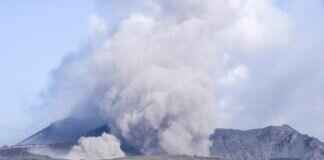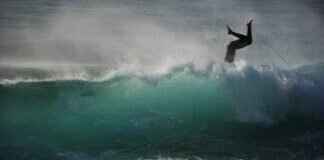This article explores the signs and symptoms of an infected dog bite, providing crucial information for pet owners and caregivers to recognize and address potential complications effectively.
Dog bites can happen for a variety of reasons, including fear, aggression, or playfulness. Understanding the context of the bite is essential for both prevention and treatment. By recognizing the common causes of dog bites, pet owners can take proactive measures to minimize risks.
After a dog bite occurs, recognizing the initial symptoms is crucial for timely intervention. The most common initial reactions include:
- Swelling and Redness: These are typical inflammatory responses that signal the body is reacting to injury. If swelling persists or worsens, it may indicate an infection.
- Pain and Discomfort: While some pain is expected, excessive pain could suggest complications. Monitoring pain levels is essential.
Identifying the signs of infection is vital for effective treatment. Common indicators include:
- Fever and Chills: These systemic responses can indicate that an infection is present. If they occur, it’s important to seek medical attention.
- Pus and Discharge: The presence of pus or any unusual discharge from the bite site is a clear sign of infection and should be addressed immediately.
Knowing when to seek veterinary care can prevent serious complications. Critical signs that require urgent attention include:
- Severe Infection Symptoms: If the bite area becomes increasingly painful, swollen, or shows signs of systemic infection, immediate veterinary care is necessary.
- Post-Bite Care: Proper care and monitoring of the bite site at home can significantly aid recovery. Keeping the area clean and observing for changes is essential.
Ultimately, preventing dog bites is the best strategy for avoiding infections. Practical tips for dog owners include:
- Training and Socialization: Implementing effective training can minimize aggressive behaviors in dogs.
- Recognizing Warning Signs: Understanding a dog’s body language can help prevent bites by recognizing when a dog feels threatened or aggressive.
In conclusion, being aware of the signs and symptoms of an infected dog bite is essential for pet owners and caregivers. By understanding the risks and taking appropriate action, potential complications can be effectively managed.

Understanding Dog Bites
Dog bites are a significant concern for pet owners and the general public, as they can lead to serious injuries and infections. Understanding the reasons behind dog bites is crucial for both prevention and effective treatment. This section will delve into the common causes of dog bites, their implications, and how to mitigate risks associated with them.
There are several common causes for dog bites, which can generally be categorized into the following:
- Fear or Anxiety: Dogs may bite when they feel threatened or scared. This reaction is often seen in dogs that have been abused or poorly socialized.
- Protective Behavior: Dogs are instinctively protective of their territory, owners, or young. They may bite if they perceive a threat to their loved ones.
- Playfulness: Sometimes, what may seem like a playful nip can escalate into a bite, especially if the dog is overly excited or stimulated.
- Pain or Illness: A dog in pain or suffering from an illness may react aggressively, even towards familiar people, as a defense mechanism.
- Resource Guarding: Dogs may bite to protect their food, toys, or other valued possessions from perceived threats.
Understanding these causes can help in preventing dog bites. For instance, educating children on how to approach dogs safely and recognizing a dog’s body language can significantly reduce the risk of bites. Additionally, proper training and socialization of dogs from a young age can help mitigate aggressive behaviors.
It is essential for dog owners to be aware of their pet’s triggers and to monitor their behavior closely. By understanding the context in which a dog might bite, owners can take proactive steps to ensure a safe environment for both their pet and the public.
In conclusion, recognizing the reasons behind dog bites is vital for prevention and treatment. By being informed and proactive, we can significantly reduce the incidence of dog bites and the complications that may arise from them.

Initial Symptoms of a Dog Bite
Recognizing the initial symptoms of a dog bite is crucial for timely intervention and effective treatment. When a dog bite occurs, the body reacts in various ways, and being aware of these immediate signs can help pet owners and caregivers respond appropriately. Below are some of the key symptoms to look out for after a dog bite:
- Swelling: One of the first signs to notice is swelling around the bite area. This is a natural response as the body sends fluid and white blood cells to the site of injury to combat potential infection.
- Redness: Along with swelling, you may observe redness surrounding the bite. This indicates inflammation and should be monitored closely.
- Pain and Tenderness: The bite area may be painful to the touch. If the pain is severe or escalates over time, it could signal complications.
- Warmth: The bite site may feel warm compared to the surrounding skin, indicating increased blood flow and inflammation.
It’s important to monitor these symptoms closely, as they can serve as indicators of whether the wound is healing or becoming infected. If swelling and redness persist beyond a few hours or worsen, it may be time to seek veterinary care.
Additionally, the duration of these symptoms is significant. Typically, initial swelling and redness should subside within a few days. If they do not, or if new symptoms develop, such as fever or pus, immediate veterinary attention is necessary.
In summary, being vigilant and recognizing the initial symptoms of a dog bite can lead to timely and effective intervention, reducing the risk of serious complications.
Swelling and Redness
When a dog bite occurs, it is not uncommon to notice swelling and redness around the affected area. These initial reactions are part of the body’s inflammatory response, which is a natural mechanism aimed at protecting the body from further harm and promoting healing. The swelling is caused by an increase in blood flow and the accumulation of fluid in the tissues, while redness is a result of the dilation of blood vessels.
While these symptoms are typical, they can also be indicators of a more serious issue, such as an infection. If the swelling persists or worsens over time, it may signal that bacteria have entered the wound and are multiplying. In such cases, it is crucial to monitor the bite closely for additional symptoms of infection.
| Signs of Infection | What to Look For |
|---|---|
| Increased Swelling | Swelling that continues to grow after the first 24 hours. |
| Persistent Redness | Redness that spreads beyond the initial bite area. |
| Warmth | Feeling of heat around the bite site. |
| Pus or Discharge | Presence of yellow or green fluid coming from the wound. |
In addition to swelling and redness, other symptoms such as pain, fever, and chills may also arise, indicating that medical attention is necessary. It is essential for pet owners to be vigilant and seek veterinary care if they observe any of these alarming signs. Early intervention can prevent complications and ensure a smoother recovery.
In conclusion, while swelling and redness are common reactions to dog bites, they can also be signs of a potential infection. Understanding these symptoms and their implications is vital for effective treatment and recovery.
Assessing Severity of Swelling
Assessing the severity of swelling is a critical aspect of managing a dog bite injury. Swelling, medically known as edema, can vary significantly in its intensity and implications. Understanding how to evaluate swelling can not only guide pet owners in determining the urgency of medical attention but also aid in the overall treatment process.
When assessing swelling, consider the following guidelines:
- Size and Extent: Measure the area of swelling. If the swelling is larger than a few inches in diameter or continues to increase, this may indicate a more severe reaction or potential infection.
- Location: Swelling on sensitive areas such as the face, neck, or joints may require immediate veterinary attention due to the risk of complications.
- Accompanying Symptoms: Pay attention to other signs such as redness, warmth, or discharge. These can be indicative of an infection and should not be overlooked.
- Duration: Swelling that persists beyond 48 hours or worsens over time is a red flag. Immediate veterinary consultation is recommended in such cases.
It is important to monitor the swelling closely. If the swelling is accompanied by excessive pain, fever, or any unusual behavior from the dog, these may be signs that the situation is worsening and requires prompt attention.
In summary, evaluating the severity of swelling involves a careful assessment of size, location, accompanying symptoms, and duration. By following these guidelines, pet owners can make informed decisions regarding the need for medical care, ensuring the well-being of their furry companions.
Duration of Symptoms
The duration of swelling and redness following a dog bite is a critical factor in assessing the risk of infection. Typically, these symptoms can last anywhere from a few hours to several days, depending on the severity of the bite and the individual dog’s response. It’s essential for pet owners to monitor these symptoms closely, as prolonged swelling and redness could indicate a developing infection.
Initially, after a dog bite, some degree of swelling and redness is expected as part of the body’s inflammatory response. This reaction is the body’s natural way of healing and protecting the injured area. However, if the swelling persists beyond 48 to 72 hours or worsens, it may be a sign that the injury is becoming infected.
When to Seek Help: If you notice any of the following signs, it is crucial to seek veterinary assistance:
- Swelling that continues to increase after three days.
- Redness that spreads away from the bite site.
- Presence of pus or discharge.
- Fever or lethargy in your dog.
In summary, while some swelling and redness are normal after a dog bite, the duration and progression of these symptoms are vital indicators of potential infection. Monitoring these signs can help ensure timely intervention and better health outcomes for your pet. Always err on the side of caution and consult with a veterinarian if you have concerns about your dog’s recovery.
Pain and Discomfort
are common responses to injuries, including dog bites. While some level of pain is expected as part of the body’s healing process, excessive pain can be a warning sign of complications, such as infection. Understanding the relationship between pain levels and the risk of infection is crucial for pet owners and caregivers.
When a dog bite occurs, the body initiates an inflammatory response, which can result in swelling, redness, and pain around the affected area. This is part of the healing process, but if the pain intensifies rather than subsides, it may indicate that an infection is developing. Infections can arise from bacteria introduced during the bite, and they can escalate quickly if not addressed.
It’s important to monitor the pain level over time. If the pain persists beyond a few days or becomes increasingly severe, it may be accompanied by other signs of infection, such as:
- Fever: A rise in body temperature can indicate that the body is fighting an infection.
- Pus or Discharge: The presence of pus or an unusual discharge from the wound site is a clear sign that medical attention is needed.
- Increased Swelling: While some swelling is normal, significant increases can suggest complications.
In summary, while some pain is a natural part of recovery, excessive pain should not be ignored. It is essential for pet owners to be vigilant and seek veterinary care if the pain does not improve or is accompanied by other concerning symptoms. Early intervention can prevent serious complications and promote a faster recovery for the affected animal.

Signs of Infection in Dog Bites
Identifying signs of infection is crucial for effective treatment of dog bites. When a dog bite occurs, the body’s response can vary, and pet owners must be vigilant in monitoring for any indicators of infection. This section outlines the common signs that may suggest an infection is developing, helping pet owners take timely action.
- Swelling and Redness: One of the first signs of infection is noticeable swelling and redness around the bite area. This is a natural inflammatory response, but if it persists or worsens, it may indicate an infection.
- Pain and Tenderness: While some pain is expected after a bite, excessive pain that continues to escalate can be a sign of infection. Pay attention to changes in your pet’s behavior, such as reluctance to move or being sensitive to touch.
- Pus or Discharge: The presence of pus or any unusual discharge from the bite site is a clear indicator of infection. This can be accompanied by a foul odor, which should prompt immediate veterinary attention.
- Fever and Chills: If your dog develops a fever or experiences chills, this can be a systemic response to infection. Monitoring your pet’s temperature can help you catch these signs early.
- Loss of Appetite: An infected dog may show a decreased interest in food or water. If your pet is not eating or drinking as usual, this could be a sign that something is wrong.
It is essential for pet owners to remain observant after a dog bite. If any of these signs are present, seeking veterinary care promptly can help prevent serious complications and ensure a better recovery for your pet.
Fever and Chills
are significant indicators of systemic responses to infections, and they can manifest as a result of a dog bite. When a dog bite occurs, the body may react not only at the local site of injury but also systemically, indicating a potential infection that requires immediate attention.
After a dog bite, fever often arises as the body mobilizes its immune defenses to fight off pathogens. A rise in body temperature is a natural response, signaling that the body is working hard to combat an infection. On the other hand, chills can occur as the body attempts to regulate its temperature, leading to shivering and a sensation of coldness, even when the body temperature is elevated.
It is crucial for pet owners and caregivers to recognize these symptoms early. If a dog bite leads to fever and chills, this could suggest that the bite has become infected or that the body is struggling to manage the infection. Some signs to watch for include:
- Temperature above 101.5°F (38.6°C) – This is considered a fever and should be monitored closely.
- Persistent chills – Especially if accompanied by sweating or fatigue.
- Swelling or redness around the bite site, which may worsen over time.
- Pus or unusual discharge from the wound.
When these symptoms occur, it is essential to seek immediate medical attention. Early intervention can be critical in preventing serious complications, including severe infections that may require hospitalization or more intensive treatment.
In conclusion, fever and chills following a dog bite are serious symptoms that should not be overlooked. Recognizing these signs and acting promptly can significantly improve outcomes and ensure proper care for both the pet and the affected individual.
Pus and Discharge
from a dog bite site are significant indicators of infection and should never be overlooked. Understanding the nature of these symptoms is crucial for pet owners and caregivers.
When a dog bite occurs, the body initiates a healing process that may involve some degree of inflammation. However, if you notice pus or an unusual discharge, it is essential to recognize that this may indicate a more serious issue. The discharge may appear yellow or greenish and often has a foul odor, which is a clear sign that bacteria are present.
Here are some key aspects to consider when assessing pus and discharge from a dog bite:
- Color and Consistency: Healthy wounds typically do not produce pus. If the discharge is thick, yellow, or green, it suggests an infection.
- Accompanying Symptoms: Look for other signs of infection such as increased swelling, redness, or warmth around the bite site. Fever or chills can also indicate that the infection is systemic.
- Duration: If the pus persists for more than a couple of days or worsens, it is crucial to seek veterinary care.
Managing an infected dog bite requires immediate attention. Here are some steps to take:
- Clean the Wound: Gently wash the area with soap and water to reduce the risk of further infection.
- Apply an Antiseptic: After cleaning, apply an antiseptic solution to help prevent the spread of bacteria.
- Seek Veterinary Care: If you notice pus or any other signs of infection, contact your veterinarian promptly for further evaluation and treatment.
In conclusion, recognizing from a dog bite is vital for ensuring the health and safety of your pet. Early intervention can prevent complications and promote faster healing. Always consult with a veterinary professional when in doubt.

When to Seek Veterinary Care
Recognizing when to seek veterinary care for your pet is crucial in preventing serious complications that can arise from untreated injuries or infections. Understanding the signs that indicate a need for professional intervention can save your pet from unnecessary pain and suffering.
Here are some key criteria to help you determine when it’s time to consult a veterinarian:
- Persistent Swelling or Redness: If the swelling or redness around the bite area does not improve within a few days, this may indicate an underlying infection.
- Excessive Pain: While some discomfort is expected after a bite, if your pet shows signs of extreme pain or distress, it’s essential to seek help.
- Fever or Lethargy: A sudden rise in body temperature or unusual lethargy can signify that your pet’s body is fighting an infection, necessitating immediate veterinary attention.
- Pus or Discharge: The presence of pus or any unusual discharge from the wound site is a clear indicator of infection that requires prompt treatment.
- Changes in Appetite: A noticeable decrease in your pet’s appetite or refusal to eat can be a sign of serious health issues, including infection.
- Behavioral Changes: Sudden changes in behavior, such as increased aggression or withdrawal, may indicate pain or discomfort that warrants a veterinary visit.
In conclusion, being vigilant and aware of these signs can help you act quickly and ensure your pet receives the necessary care. Regular check-ups and open communication with your veterinarian can further aid in maintaining your pet’s health and well-being. Remember, early intervention is key to preventing more severe complications down the line.
Signs of Severe Infection
When it comes to dog bites, recognizing the signs of severe infection is crucial for ensuring your pet’s health and well-being. Severe infections can escalate quickly and may lead to serious complications if not addressed promptly. This section highlights the critical signs that require urgent veterinary attention.
- Increased Swelling: While some swelling is normal after a dog bite, excessive swelling that continues to worsen over time may indicate an infection. If the area feels hot to the touch or appears significantly larger than initially, it’s time to seek veterinary care.
- Persistent Pain: Pain is a natural response to injury; however, if your dog exhibits intense pain that does not subside, it could be a sign of a severe infection. Watch for signs of distress, such as whining or reluctance to move.
- Foul Odor: An unusual or foul smell emanating from the bite site is a strong indicator of infection. This odor is often due to the presence of bacteria and pus, which necessitates immediate veterinary evaluation.
- Fever: If your dog develops a fever (a temperature above 102.5°F), it is often a systemic response to infection. Accompanying symptoms like lethargy and loss of appetite can further indicate a serious issue.
- Discharge: The presence of pus or other abnormal discharge from the bite site signals infection. Monitoring the color, consistency, and amount of discharge can provide valuable information to your veterinarian.
In conclusion, being vigilant about the signs of severe infection following a dog bite can save your pet from serious health complications. If you notice any of these alarming symptoms, do not hesitate to contact your veterinarian for immediate assistance.
Post-Bite Care and Monitoring
is crucial for ensuring a smooth recovery after a dog bite. Proper attention to the bite site can significantly reduce the risk of infection and promote healing. Here, we will explore best practices for monitoring and treating the bite at home.
First and foremost, it is essential to clean the wound thoroughly. Use mild soap and warm water to gently wash the area around the bite. This initial step helps to remove any dirt or bacteria that may have entered the wound. After cleaning, apply an antiseptic solution to further reduce the risk of infection.
- Monitor for Signs of Infection: Keep an eye on the bite site for symptoms such as increased redness, swelling, or warmth. If you notice any pus or unusual discharge, it may indicate an infection.
- Manage Pain and Discomfort: Over-the-counter pain relievers can help alleviate discomfort. However, consult with a healthcare professional before administering any medication, especially for children.
- Keep the Wound Covered: Use a sterile bandage to protect the bite area from dirt and further injury. Change the bandage daily or whenever it becomes wet or dirty.
In addition to physical care, it’s important to maintain a watchful eye on the overall health of the individual who was bitten. Look for systemic symptoms such as fever or chills, which could indicate a more serious infection. If these symptoms occur, seek medical attention promptly.
Lastly, ensure that the dog involved in the incident is up-to-date on vaccinations, particularly rabies. This is a crucial step in preventing any potential complications from the bite.
In conclusion, proper post-bite care and monitoring are vital for recovery. By following these best practices, you can help ensure that the bite heals correctly and reduce the risk of infection.

Preventing Dog Bites
is a crucial aspect of responsible pet ownership. Not only do dog bites pose a risk of injury, but they can also lead to serious infections that require medical attention. By implementing effective strategies, dog owners and caregivers can significantly reduce the likelihood of bites occurring.
One of the most effective methods for preventing dog bites is through proper training and socialization. Dogs that are well-socialized with people and other animals tend to exhibit less aggressive behavior. It is essential to expose puppies to various environments, sounds, and experiences to help them become well-adjusted adults. Consider enrolling your dog in obedience classes, which can also strengthen the bond between you and your pet.
Another important factor is recognizing warning signs of aggression or discomfort in dogs. Dogs often communicate their feelings through body language. Signs such as growling, baring teeth, or a stiff posture indicate that a dog may feel threatened. By learning to recognize these signals, caregivers can take proactive steps to prevent a potential bite.
Additionally, it is vital to supervise interactions between dogs and young children. Children may unknowingly provoke a dog, leading to unintended bites. Teaching children how to approach and interact with dogs safely can help mitigate risks. Always encourage gentle behavior and remind children to respect a dog’s space.
Lastly, maintaining a dog’s health through regular veterinary check-ups can also play a role in preventing bites. A dog in pain or discomfort due to an underlying health issue may be more prone to aggressive behavior. Keeping vaccinations up to date and addressing any behavioral concerns with a professional can contribute to a safer environment.
In conclusion, preventing dog bites requires a multifaceted approach that includes training, awareness, and health management. By taking these proactive steps, dog owners can create a safer environment for both their pets and the community.
Training and Socialization
are critical components in ensuring a well-adjusted and non-aggressive dog. By implementing effective training techniques and socialization practices, dog owners can significantly reduce the likelihood of aggressive behaviors, thereby minimizing the risk of dog bites in various situations.
One of the most effective methods of training is positive reinforcement. This technique encourages desired behaviors by rewarding dogs with treats, praise, or playtime when they exhibit good behavior. For instance, rewarding a dog for remaining calm in the presence of strangers can help it associate positive experiences with potentially stressful situations.
Another vital aspect of training is consistency. Establishing clear rules and boundaries helps dogs understand what is expected of them. Owners should ensure that all family members enforce the same commands and rules to avoid confusing the dog, which could lead to anxiety and aggressive responses.
Socialization is equally important. Exposing dogs to a variety of environments, people, and other animals from a young age helps them develop confidence and reduces fear-based aggression. This can be achieved through:
- Regular visits to dog parks
- Participating in obedience classes
- Inviting friends and family over to interact with the dog
Additionally, it is crucial to recognize and address any signs of discomfort or anxiety in dogs. Understanding a dog’s body language can help owners intervene before a situation escalates. For example, if a dog displays signs of fear such as cowering or growling, it is important to remove the dog from the situation rather than forcing it to confront its fears.
In conclusion, effective training and socialization are essential for minimizing aggressive behaviors in dogs. By employing positive reinforcement, maintaining consistency, and prioritizing socialization, dog owners can create a safe and harmonious environment for both their pets and the community. This proactive approach not only enhances the dog’s quality of life but also fosters positive interactions with others.
Recognizing Warning Signs
Understanding a dog’s body language is crucial for both owners and caregivers, as it can significantly reduce the risk of dog bites. Dogs communicate their feelings and intentions through various physical cues, which can indicate whether they are feeling threatened or aggressive. Recognizing these warning signs can help in taking appropriate action to prevent an incident.
- Tail Position: A dog’s tail can reveal a lot about its emotional state. A high, stiff tail often indicates excitement or aggression, while a low or tucked tail suggests fear or submission.
- Ears: Pay attention to ear positioning. Ears that are pinned back indicate fear or submission, while ears that are standing upright might signal alertness or aggression.
- Mouth and Teeth: A dog showing its teeth can be a sign of aggression. If the dog is growling or has a tense mouth, it may be feeling threatened.
- Body Posture: A dog that is stiff and rigid is likely feeling defensive. Conversely, a relaxed body posture indicates comfort and safety.
- Eye Contact: Direct, prolonged eye contact can be perceived as a challenge. A dog that is averting its gaze may be trying to avoid confrontation.
In addition, recognizing the context of a dog’s behavior is essential. For example, a dog that is cornered or feels trapped may react defensively even if it usually has a calm demeanor. Understanding these warning signs not only helps in preventing bites but also fosters a better relationship between dogs and humans.
By being aware of these indicators, dog owners can create a safer environment for both their pets and others. It is essential to educate oneself on dog behavior and to approach unfamiliar dogs with caution, ensuring that both the human and the dog feel secure.
Frequently Asked Questions
- What should I do immediately after a dog bite?
First things first, clean the wound with soap and water to reduce the risk of infection. Apply an antiseptic and cover it with a clean bandage. If the bleeding is severe or doesn’t stop, seek medical help right away!
- How can I tell if a dog bite is infected?
Look for signs like increased redness, swelling, warmth around the bite, and any pus or unusual discharge. If you notice fever or chills, it’s crucial to seek veterinary care immediately!
- When should I take my dog to the vet after a bite?
If your dog shows signs of severe swelling, excessive pain, or if the bite is deep, don’t hesitate! A vet visit is essential to prevent complications and ensure proper treatment.
- Can I prevent dog bites?
Absolutely! Proper training and socialization can significantly reduce the risk. Always be aware of a dog’s body language—if they seem anxious or aggressive, it’s best to give them space!
- What are the long-term effects of a dog bite?
Long-term effects can vary. Some bites may lead to scarring or chronic pain, while others might require ongoing treatment for infection. Always consult a vet for a thorough evaluation!














